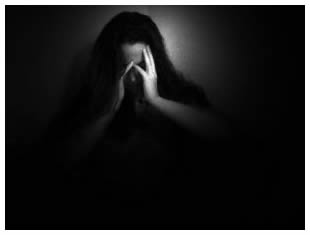 The answer to this question is the same as the answer to “How long is a piece of string?” The short answer is that there is no simple answer. Every person who suffers from depression is different, and the depression they experience is due to different causes. Therefore there is no single, generic answer to this question.
The answer to this question is the same as the answer to “How long is a piece of string?” The short answer is that there is no simple answer. Every person who suffers from depression is different, and the depression they experience is due to different causes. Therefore there is no single, generic answer to this question.
The first aspect of depression to consider when advocating treatment is the severity of the depression. Where depression is mild, the use of antidepressants is best avoided. Seeking the root cause of the depression and making appropriate life changes is more useful in cases of mild depression than simply swallowing a pill. The reasons for this were stated in previous articles on depression, in particular, When taking antidepressants aren’t the best option (1), (2), and (3).
When depression is moderate to severe, antidepressants may be useful, particularly in the short term to allow the sufferer a “breathing space”. Chronic moderate to severe depression is extremely debilitating and sufferers usually need a break from the relentless emotional pain that accompanies depression. They also need an opportunity to reorient themselves so as to initiate the first attempts to bring lasting change into their lives.
Moderate depression responds well to a combination of medication and counseling. The medication provides the patient with a more stable platform on which to work with their problem, and counseling in its various forms gives the patient a sense of understanding and direction. There exists a raft of different counseling treatments available to counselors, which are generally tailor made to the needs of each patient. Often lifestyle changes, including eliminating entrenched thinking patterns, are required in order for depression to be permanently relieved. Medication may help in many of these cases.
However, many people find antidepressant medication difficult to tolerate and unfortunately most antidepressants are accompanied by a host of side effects. For this reason, many people opt out of the medication route. However, when antidepressants are required, it is important to understand that sometimes many different medications may need to be tried, sometimes as many as ten different types, before the right one is found. Of course, this constant change of medication is extremely distressing for the sufferer. Unfortunately there is no easy way around this problem.
In cases where medication fails to have any effect on the depression successfully, electroconvulsive Therapy (ECT) may be required. ECT involves passing a current through the brain under anesthesia, which results in a grand mal seizure. ECT is used as a last resort for severely depressed patients when antidepressant therapy has failed. Although it carries a number of side effects, including memory loss, for some patients it can be very effective. Despite its many decades of use, the mechanism by which it works remains largely unknown.
Contact Beth McHugh for further information or assistance regarding this issue.

